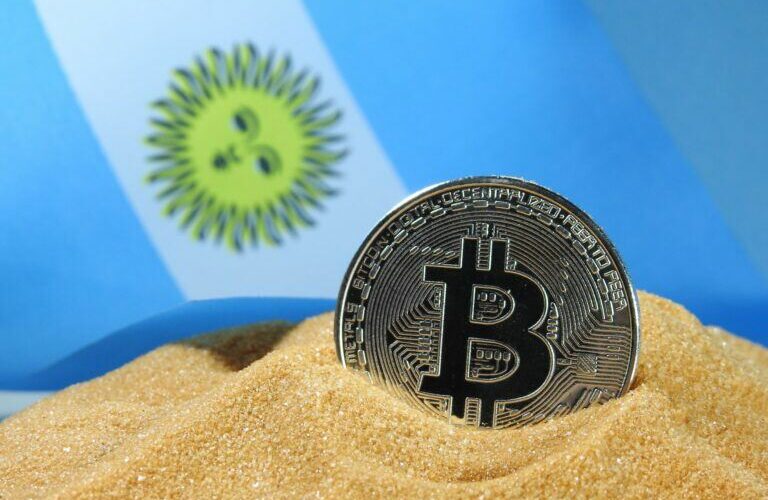El Salvador Gears Up for 2024 Bitcoin Bond Launch with Regulatory Approval
El Salvador, located in Central America, holds the distinction of being the region’s smallest and most densely populated nation. The country declared its independence from Spain in 1821 and initially joined the Federal Republic of Central America, eventually establishing itself as an independent nation in 1841.
The nation shares its borders with Honduras to the northeast, Guatemala to the northwest, and is flanked by the Pacific Ocean to the south. San Salvador serves as both the capital and the largest city. Traditionally, El Salvador’s economy was primarily agricultural, but recent decades have seen a significant expansion in the services and manufacturing sectors.
In a landmark move, El Salvador became the world’s first country to recognize Bitcoin as legal tender in September 2021, alongside the U.S. dollar. This initiative aimed to stimulate the economy, attract investment, and enhance access to financial services for its population. Nonetheless, the decision to adopt Bitcoin has sparked debate and faced various hurdles, including skepticism from global financial bodies and concerns about its implications for the nation’s financial health.
El Salvador has taken a significant step towards the issuance of its long-planned Bitcoin bonds, known as “Volcano Bonds,” with the recent acquisition of regulatory approval. This development, announced earlier today by the country’s National Bitcoin Office, paves the way for the bonds to be offered on Bitfinex Securities, a regulated division of the crypto exchange Bitfinex.
The Digital Assets Commission (CNAD) has granted approval for the Volcano Bonds, as revealed in a post by El Salvador’s National Bitcoin Office. The office anticipates that the bond will be issued in the first quarter of 2024, marking a notable advancement in El Salvador’s crypto-focused financial initiatives.
The concept of Volcano Bonds was first introduced by President Bukele in 2021, following the enactment of a law that recognized Bitcoin (BTC) as legal tender in El Salvador. The primary objective of these bonds is to raise $1 billion, aimed at fostering a Bitcoin mining industry powered entirely by renewable energy, including geothermal energy from the country’s active volcanoes. Originally scheduled for a March 2022 issuance, the Volcano Bonds faced several postponements. However, the digital assets bill, crucial for the bonds’ issuance, was introduced in the Legislative Assembly at the end of November 2022. The bill passed with significant support in January 2021, reflecting the majority held by Bukele’s party, Nuevas Ideas, in the assembly.
On 1 December 2023, Nayib Bukele stepped down from his role as the President of El Salvador. His resignation was sanctioned by the nation’s Legislative Assembly, enabling him to concentrate on his campaign for re-election in 2024. Following his departure, Claudia Rodríguez de Guevara assumed the position of Acting President, with her term expected to extend until June 2024. El Salvador is set to hold its next general election in February 2024.
A few days later, on 4 December 2023, Bukele took to the social media platform X to discuss El Salvador’s position regarding its Bitcoin investments. In his post, Bukele proudly declared that the country’s investments in Bitcoin were now yielding profits. He highlighted that, contrary to numerous critical reports and negative media attention focusing on presumed losses based on Bitcoin’s fluctuating market prices, the current market value has shifted the situation in El Salvador’s favor.
Bukele elaborated that selling El Salvador’s Bitcoin assets at the prevailing market rate would not only recoup the initial investment but also generate a profit of $3,620,277.13 USD. This profit marks a notable reversal from the losses reported earlier. Importantly, Bukele stressed that El Salvador plans to retain its Bitcoin holdings, indicating a long-term investment approach in the cryptocurrency, despite its well-known market volatility. This statement reaffirms the commitment of Bukele’s administration to Bitcoin and its prospective future worth.
In his message, Bukele also addressed the media and critics of El Salvador’s Bitcoin strategy. He challenged the authors of earlier critical pieces to either retract their claims, issue apologies, or acknowledge the current profitability of the nation’s Bitcoin investment. Bukele called for journalistic integrity, urging that the positive turn in El Salvador’s Bitcoin investment should be reported with the same vigor as the earlier negative coverage.
Featured Image via Unsplash
Source: Read Full Article

